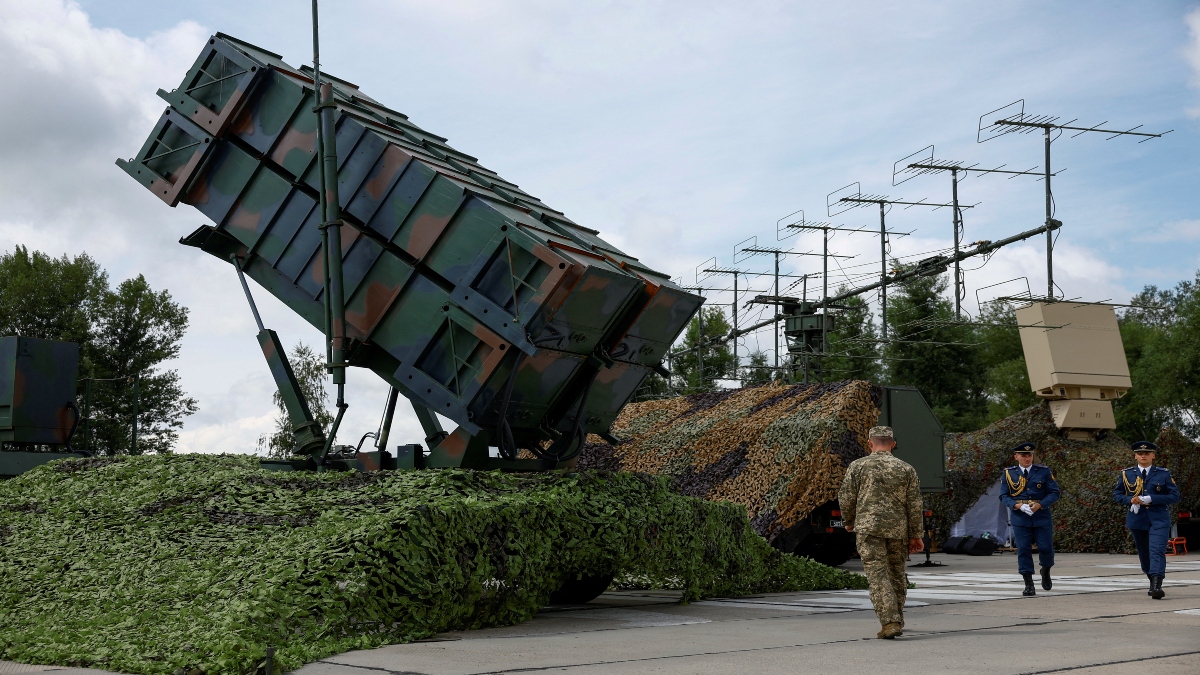Months of relentless Russian missile strikes suggest Moscow has successfully upgraded its weapons to evade Ukraine’s air defences, according to a Financial Times report, citing Ukrainian and Western officials.
Recent attacks targeting Ukrainian drone manufacturers this summer highlighted Russia’s improvements to its ballistic missiles, specifically designed to outmaneuver US-supplied Patriot systems, added the report.
Russia is believed to have modified its Iskander-M mobile missile system — with a range of up to 500 km — and its Kinzhal air-launched ballistic missiles, which can fly up to 480 km. These upgraded missiles now follow standard trajectories before abruptly diving steeply or performing evasive maneuvers that “confuse and avoid” Patriot interceptors.
“This is a game-changer for Russia,” FT quoted a former Ukrainian official as saying.
With Ukraine also facing delays in receiving US air defence interceptors, Russia’s renewed missile campaign has severely damaged military targets and critical infrastructure ahead of the winter.
Although Ukraine’s ballistic missile interception rate rose to 37% in August, it plunged to just 6% in September — despite fewer launches — according to the Financial Times report, citing Ukrainian air force data compiled by the Centre for Information Resilience.
Ukraine’s air force said all four Iskander-M missiles fired overnight on Wednesday evaded air defences and struck their targets.
At least four drone production facilities in and around Kyiv were heavily damaged by missile strikes over the summer, according to the report, citing current and former Ukrainian officials.
One attack on August 28 hit a site producing Turkish Bayraktar drones.
Two of the missiles in that strike reportedly targeted the offices of a company involved in drone system components, damaging nearby buildings, including those housing the EU delegation and British Council.
Patriot systems are Ukraine’s only defence against ballistic missiles in Kyiv. While cruise missiles can be intercepted by less advanced systems, officials say recent upgrades by Russia have made even those harder to stop.
A Western official briefed on Patriot performance data said the first sign of Russian missile upgrades was a sharp decline in interception rates. A clear “pattern” emerged, they noted, where incoming missiles began behaving differently during their “terminal phase,” deviating from known engagement profiles, reported Financial Times.
This assessment aligns with a US Defence Intelligence Agency report covering April 1 to June 30, which found Ukrainian forces had “struggled to consistently use Patriot air defence systems to protect against Moscow’s ballistic missiles because of recent Russian tactical improvements, including enhancements that enable their missiles to change trajectory and perform manoeuvres rather than flying in a traditional ballistic trajectory.”
The report cited a June 28 attack involving seven ballistic missiles — only one of which was intercepted — and a July 9 barrage, the largest since the war began, in which Ukraine intercepted or suppressed 7 out of 13 missiles.
Ukraine shares Patriot system engagement data with the Pentagon and US manufacturers. Raytheon builds the system, and Lockheed Martin produces the interceptors. While the data helps refine the systems to counter evolving Russian tactics, one official admitted those updates often lag behind Moscow’s rapid adjustments, added the report.
“The Russians continue to significantly upgrade their Iskander and other missiles’ technology,” Sergiy Kyslytsya, Ukraine’s first deputy foreign minister, told FT.
He stressed the need for Kyiv’s partners to choke off flows of western-made components to Russia, including via China.
Analysts say Russia’s missiles are becoming harder to intercept due to likely software upgrades.
Fabian Hoffmann, a missile researcher at the University of Oslo, told FT that manufacturers often use interception data to refine missile performance — and Russia appears to be doing just that.
The Iskander-M, he said, “can manoeuvre quite aggressively in the terminal stage.”
Rather than requiring expensive hardware changes, simple tweaks to the guidance system can enable last-second manoeuvres followed by steep dives, overwhelming Patriot defences.
“A steeper terminal trajectory, that’s something you can programme in the missile,” Hoffmann explained.
He described the conflict as both a technological “adaptability game” and a cat-and-mouse effort to destroy each other’s weapons systems.
Russia’s Kinzhal missiles, launched from strategic bombers or jets outside Ukraine’s reach, and its mobile Iskander launchers, remain difficult targets.
Meanwhile, Ukraine’s mobile Patriot air defence systems — comprising radar, control stations, and launchers — have also come under sustained attack. Some have been damaged, weakening the country’s layered air-defence network.
Among those targeted was Lieutenant Colonel Denys Sakun, chief engineer of an anti-aircraft missile unit in Kyiv’s 96th Brigade. He played a key role in setting up systems credited with the first known shoot-down of a Russian Kh-47M Kinzhal.
He was killed in December while trying to save Patriot equipment during a fire caused by a Russian strike near Kyiv.
Patriot systems were previously shielded by other defences like the Iris-T, but with some of those now damaged or redeployed, “the Patriots have to cover themselves,” FT quoted a source familiar with the situation as saying.
Ukraine does not publicly disclose the number or location of its Patriot batteries.
At least six are confirmed to be in service, with Germany and Norway delivering components for three more in recent weeks. President Volodymyr Zelenskyy has appealed for additional systems, offering to buy up to 10 full batteries.
With winter approaching, Zelenskyy warned of a renewed Russian effort to cripple Ukraine’s power grid.
“Unfortunately, this has already become a traditional Russian tactic,” he said. “Russia is once again trying to hit Ukraine with a blackout this year.”
With inputs from agencies
End of Article

)

)